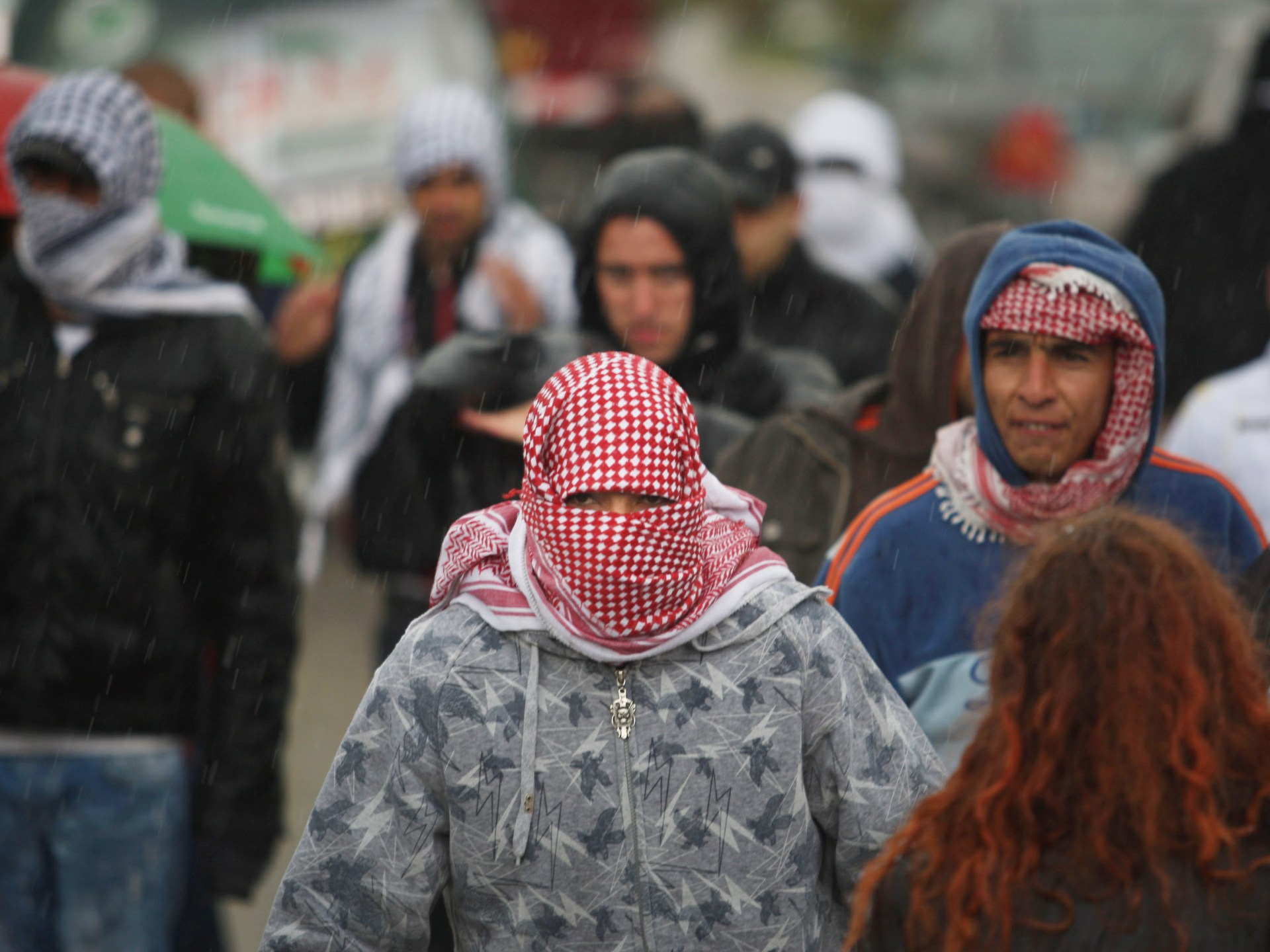Palestinians from the 48 territories in the city of Umm al-Fahm, northern Israel (Getty)
The Israeli war on the Gaza Strip cast a dark shadow on the Palestinians of 1948, with rising costs of living, widespread poverty, rising unemployment rates, and worsening economic distress, especially in the month of Ramadan.
The Palestinians of 1948 are the Palestinians who did not leave their lands during the Israeli occupation of the Palestinian territories in 1948.
According to official data, the unemployment rate among Jews in Israel is about 9%, while it exceeds 15% among Arabs, whose misfortunes were exacerbated by the dwindling commercial activity and the closure of Arab-owned companies due to the boycott of Jewish consumers during the October 7 attack.
Financial and economic expert Nabil Armli stressed to Al Jazeera the profound impact of the war on the local markets of Palestinian communities during the war. Armeli said that the escalation of unemployment by 15% in Arab society highlights the great challenges faced by Palestinian families who depend on modest incomes compared to their Jewish counterparts.
With the economically vital construction sector halted, thousands of Palestinian workers have lost their jobs on a large scale. This stagnation has not only endangered the livelihoods of Palestinian families, but has also exacerbated economic pressures on contractors and companies.
In light of these differences, questions arise about the unequal treatment between Arabs and Palestinians inside Israel. Armley attributes this to historical marginalization and systemic discrimination, which perpetuate social and economic disparities.
He also points out that "allocating resources largely to Jewish cities and towns leaves the 48 regions as underfunded and lagging behind in progress as their Jewish counterparts."
Israeli construction companies suffer from a lack of cash and fear collapse due to the war (Al Jazeera)
The repercussions extend beyond unemployment, as food insecurity has become a major concern for Arab families in Israel, as the food insecurity rate in Israel is about 31%, but the rate among the 1948 Palestinians is close to 63%.
This disparity - in addition to the inflation of Ramadan expenses, which average between $1,200 and $1,600 per month - has forced families to ration consumption or resort to credit to postpone payment in the hope that the war will end during that period, which leads to exacerbation of financial pressures.
In response to these challenges, Palestinian families are performing a delicate balancing act, striving to meet basic needs amid a turbulent economic landscape. Armli stresses the need to address these disparities, stressing the need for fair policies to raise the standard of marginalized communities and alleviate the economic burdens exacerbated by the war.
Source: Al Jazeera

